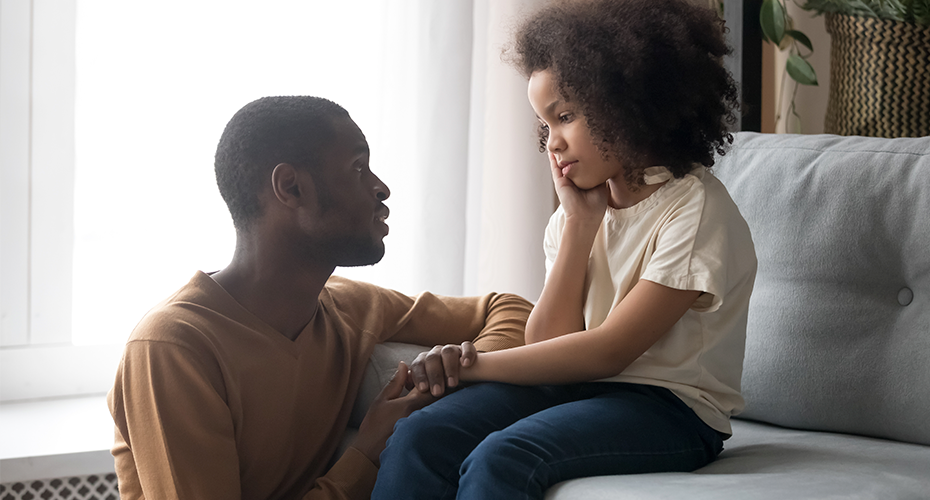Aug 17, 2020
How to talk to your elementary-age kids about school
Young children need to feel safe, supported and informed as parents, public officials and school districts grapple with tough questions about in-person or remote school reopening amid the pandemic, clinicians say.
Coverage spoke to Dr. Ken Duckworth, a child and adolescent psychiatrist and senior medical director for behavioral health at Blue Cross Blue Shield of Massachusetts, about ways to help elementary-age kids approach the new school year:

Get on their level
Children should not be bombarded with information they cannot understand. Ask them questions about what they know and how they feel and make decisions about what to tell them based on their capacity to understand. “Simplify the message,” Duckworth said. “The younger, the simpler.”
The Massachusetts General Hospital Clay Center for Young Healthy Minds recommends asking the following open-ended questions: “What have you heard about the coronavirus?” “What are your major concerns or worries?” “Do you have any questions I can help you answer?”
Manage your own mental health
Children are not the only ones suffering, and it is important for parents to provide stability and calm guidance as kids become acclimated to new school life. “Depressed parents and anxious parents generate anxiety in their children,” Duckworth said. “This is about self-care and wellness so you’re showing your child you can bear this. They’re modeling from you.” Duckworth recommends taking advantage of telehealth services, like those provided by insurance companies including Blue Cross, to help cope with the difficulties of COVID-19. Parents and caregivers also need to be honest with themselves about the daunting challenges ahead. “Most parents feel quite trapped. Most teachers feel quite trapped. There are very few workable solutions right now,” Duckworth said. “I would prepare for a marathon, not a sprint.”
Focus on what kids can control
“You need to explain there's a virus or sickness, depending on the sophistication of the child, and say ‘Here's what we need to do to keep everyone safe – your friends, teachers and family,’” Duckworth said. Elementary-aged children will likely understand that the germs causing COVID-19 are similar to ones that cause cold and flu. “Remind them that these illnesses can spread easily, but that they can also be prevented, which is why we need to wash our hands, use tissues, and use alcohol wipes,” the Clay Center advises.
Be honest but reassuring
Feeding children lies to allay their fears will only backfire in the end. “It’s ok to acknowledge what isn’t known,” Duckworth said. Be honest about what to expect from any in-person schooling, like masks and physically distancing, but remind them there are other ways to stay close with their friends. At the same time, parents should also stress what is known and what will remain constant. Maintain a calm and reassuring tone, he said. “Tell them, ‘we can get through this together,’ and ‘I’m here for you.’ You can tell them there’s a lot of unknowns, but that you’re going to do the right thing for them.”
Keep communication open
Check in with your child regularly to see how he or she is processing the back-to-school experience. “Listen to what they say, and convey that you’re willing to talk about it,” Duckworth said. Kids may experience bouts of frustration and confusion over virtual learning, mask-wearing and distance from their friends. Listen with empathy, but remind them why these precautions are being taken, he said. Tell them they are not alone and that “we’re going to follow the rules,’” Duckworth said. “And I’ll be there for you.”
Did you find this article informative?
All Coverage content can be reprinted for free.
Read more here.
PHOTO OF Dr. KEN DUCKWORTH BY FAITH NINIVAGGI

